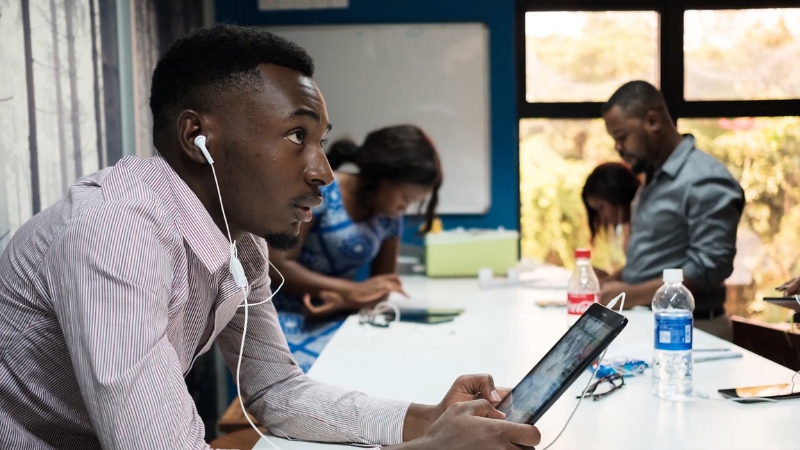Africa in 2025 is entering a phase that many small business owners have been waiting decades for. Cross-border trade is no longer the privilege of a few multinationals, and digital infrastructure has caught up to ambition.
Three developments have aligned: the African Continental Free Trade Area (AfCFTA) is finally operational with a Digital Trade Protocol adopted in February 2025; regional payment systems now cut transaction costs to below 3 percent; and global demand for African-made products and digital services is surging.
Together, they’ve created a clear path for small entrepreneurs to sell internationally, without the old friction of borders, currencies, or compliance nightmares.
Today, we will talk about ten business opportunities that align with this new landscape. Each one can be started by a small or early-stage firm.
Each has a defined route to buyers abroad. And each connects directly to structural changes flagged in the African Development Bank’s 2025 Outlook, the World Bank’s Africa Pulse 2025, and the IFC’s analysis of the region’s digital economy.
1. Cross-Border E-Commerce Stores for African Consumer Goods

Why 2025 Is the Year
Cross-border e-commerce now represents about 20 percent of global online sales and continues to grow faster than domestic retail.
For African sellers, it’s finally viable: Amazon South Africa launched its Seller Center in Cape Town, Jumia has slimmed its regional model for export support, and Etsy-style marketplaces now list African crafts as a premium category.
Route to Buyers
- Register products on platforms like Amazon, Etsy, eBay, and AliExpress (via African pilot programs).
- Use Afreximbank’s Africa Trade Gateway (ATG) to manage export documentation and tariffs.
- Integrate African payment service providers (Flutterwave, Paystack, Cellulant) that settle transactions in USD or EUR.
Skills and Compliance
- High-quality product photography and cataloging
- Basic export documentation under AfCFTA
- Proper labeling and ingredient disclosure for EU, UK, and Gulf buyers
Many artisans now personalize packaging or etch brand marks on wood, leather, or metal with compact engraving machines, such as those highlighted in the TOOCAA laser engraver review.
Risks
- Unreliable last-mile logistics outside major trade hubs
- Chargeback and fraud exposure
- Copycat listings on large platforms
2. Agro-Processing for High-Demand Commodities
View this post on Instagram
Why 2025 Is the Year
According to Maersk, Africa produces over 60 percent of global cocoa, yet captures a small slice of its final value.
With countries like Nigeria restricting raw exports to promote domestic processing, opportunities are shifting toward small and mid-scale value-added firms.
Cocoa derivative revenues are projected to rise from 26.59 billion USD in 2025 to over 45 billion USD by 2034, offering room for SMEs that master a single product line.
Route to Buyers
- Supply European and Asian food processors with traceable ingredients.
- Sell directly to cosmetic and wellness brands seeking African botanicals.
- Use AfCFTA trade corridors to ship semi-finished goods to North African packaging hubs for re-export.
Skills and Compliance
- HACCP or ISO 22000 food safety systems
- Organic, fair trade, or origin certifications
- Cold-chain management or moisture control packaging
Risks
- Weather fluctuations affecting inputs
- Export restrictions on raw commodities
- High equipment costs for roasting or drying
3. Digital Services and Remote Talent Export

Why 2025 Is the Year
Cross-border digital trade has new legal clarity thanks to the WTO and World Bank frameworks. African developers and creative teams now compete on equal footing.
With 80 percent of African startup funding coming from international investors (as per WTO), many founders already deliver solutions for global clients and can package that experience commercially.
Route to Buyers
- Use B2B marketplaces like Toptal, Upwork Enterprise, or Codeable.
- Partner with European and GCC agencies seeking affordable yet skilled teams.
- Position within the growing tech ecosystems of Nairobi, Lagos, Cape Town, and Kigali, now recognized in global startup rankings.
Skills and Compliance
- Strong contracts with IP protection
- Adherence to data protection laws (EU GDPR, UK DPA)
- Invoice management via international fintechs or compliant PSPs
Risks
- Delayed or blocked payments
- Staff turnover in tight labor markets
- Currency mismatches between billing and payroll
4. Creative and Fashion Brands with Export-Ready Supply Chains

Why 2025 Is the Year
Vogue Business and other global fashion journals now feature African and diaspora designers as trendsetters. The aesthetic appeal is there, but what matters most in 2025 is delivery reliability.
Brands that master quality control and transparency on materials can now access a loyal global audience.
Route to Buyers
- Sell through curated African fashion platforms with export logistics.
- Use cross-border e-commerce dropship models.
- Partner with influencers and content creators in the diaspora.
Skills and Compliance
- Standard sizing and material specification
- Trademark protection in key markets
- ESG transparency on sourcing and labor
Risks
- Counterfeiting by fast-fashion retailers
- High freight costs for bulky items
- Currency exposure on imported fabrics
5. Specialty Food and Beverage Exports
Why 2025 Is the Year
Climate-related volatility has shaken global coffee and cocoa supply, driving demand for diversified origins.
African producers can consolidate under AfCFTA and position their goods as both traceable and premium.
Route to Buyers
- Supply specialty roasters and artisan chocolatiers in the EU and North America.
- Join export programs under AfDB, ITC, and UNDP, showcasing African brands.
- Leverage diaspora-owned stores in the UK, UAE, and Canada.
Skills and Compliance
- Food safety audits
- Shelf-life testing
- Export-grade packaging and labeling
Risks
- Delays at congested ports
- Sudden EU plant import restrictions
- Cash flow strain from long payment cycles
6. Trade Facilitation and Compliance Tech for SMEs

Why 2025 Is the Year
Most small firms lack the capacity to manage export documentation or customs data. The AfCFTA’s new Digital Trade Protocol allows third-party tech providers to fill this gap, creating a lucrative niche for entrepreneurs who can translate complex trade rules into accessible tools.
Route to Buyers
- License to national trade promotion agencies for onboarding SMEs.
- Sell API integrations to logistics and marketplace platforms.
- Offer per-transaction services for freight forwarders.
Skills and Compliance
- Mastery of customs regulations
- Secure cloud architecture and APIs
- Localization for French, Arabic, and Portuguese markets
Risks
- Frequent rule changes
- Payment delays from public institutions
- High cybersecurity requirements
7. Edtech and Skills Platforms Targeting Global Learners
@bag.learning We’ve been quietly building, making sure we tailor the perfect platform before unleashing it to the brave and curious💥 Hold your breath … we’re about to unveil THE MOST REVOLUTIONARY PERSONALISED LEARNING PLATFORM IN AFRICA Bag Learning V2 has been extensively tested by a select group of diverse students. Finally, we believe we are ready to release it to the masses. Stay tuned 👀 www.baglearning.com #BagLearning #InTheBag #SouthAfrica #Student #AI ♬ original sound – Bag Learning
Why 2025 Is the Year
Africa’s youthful population has mastered digital learning, but the real opportunity lies in exporting knowledge about Africa to global learners.
Corporate clients and universities now seek African perspectives in law, trade, and culture. With digital payments in Africa growing at 34 percent annually, monetization has become much simpler, according to Ebanx.
Route to Buyers
- Publish on global learning marketplaces (Udemy, Coursera, Teachable).
- Partner with international universities for co-branded programs.
- Offer B2B subscriptions to companies expanding into African markets.
Skills and Compliance
- Instructional design
- Licensing for music and educational content
- VAT compliance for international digital sales
Risks
- Piracy and content theft
- Overreliance on single platforms
- Shifting learner demand
8. Logistics, Fulfilment, and Cold Chain for Exporters

Why 2025 Is the Year
With new restrictions on raw exports and a push toward processing, logistics quality is becoming a make-or-break factor for exporters.
Buyers increasingly demand traceability, especially for perishable and certified products.
Route to Buyers
- Contract directly with agro-processors and exporters.
- Partner with major carriers like DHL, Maersk, or MSC serving African food shipments.
- Integrate with e-commerce platforms requiring domestic fulfillment.
Skills and Compliance
- Customs clearance
- Temperature control management
- Insurance and inventory systems
Risks
- High upfront costs for equipment
- Road security risks
- Port congestion and delays
9. Media, Content, and Influencer Agencies for African Products Abroad

Why 2025 Is the Year
African consumer brands reach international audiences through digital storytelling. Many, however, cannot manage campaigns in multiple languages or time zones.
Agencies based in Africa can deliver the same creative quality as global firms at a lower cost.
Route to Buyers
- Offer retainer packages to African fashion, beauty, and food exporters.
- Partner with export agencies or white-label for global marketing firms.
- Manage social commerce campaigns linking TikTok, Instagram, and YouTube.
Skills and Compliance
- Platform algorithm expertise
- Contract management
- Data analytics and campaign tracking
Risks
- Frequent algorithm changes
- Heavy dependence on a few clients
- FX risk when billing in foreign currencies
10. Green and Circular Product Lines
Why 2025 Is the Year
Sustainability has become a purchasing criterion. Buyers, especially in the EU and GCC, now screen suppliers for climate resilience.
African SMEs are well-positioned to deliver circular products using local resources with low emissions.
Route to Buyers
- Supply European firms seeking compliance with the new Corporate Sustainability Due Diligence Directive.
- Serve African hospitality and real estate sectors, aiming for green certification.
- Sell through online marketplaces focused on eco-conscious consumers.
Skills and Compliance
- Life-cycle assessment (LCA) knowledge
- Green certification (FSC, Fairtrade Climate Standard, ISO 14001)
- Eco-design and packaging innovation
Risks
- Costly certification processes
- Niche market segments
- Weak IP enforcement for eco-innovation
Comparative Table
Opportunity
Capital Need
Export Readiness (2025)
Primary Markets
Key 2025 Enabler
Cross-border e-commerce
Low–Medium
High
Africa, EU, UK, GCC
AfCFTA digital trade + Amazon SA
Agro-processing
Medium–High
Medium
EU, Asia, GCC
Value addition policies + global cocoa demand
Digital services export
Low
Very High
Global
WTO–WB frameworks, startup visibility
Creative and fashion
Low–Medium
High
EU, US, diaspora
Global fashion spotlight on Africa
Specialty food exports
Medium
Medium
EU, US, GCC
Food price volatility + traceability demand
Trade facilitation tech
Low–Medium
High
Intra-Africa
AfCFTA Digital Trade Protocol
Edtech for global learners
Low
Medium
Global
Growing e-learning adoption + African expertise
Logistics and cold chain
High
Medium
Intra-Africa, EU
Processing surge + food safety compliance
Media and influencer agencies
Low
High
Global
African creative economy + social commerce
Green and circular lines
Medium
Medium
EU, GCC
Climate-conscious buyers + sustainability laws
Broader Context for 2025
The economies of countries in Sub-Saharan Africa are projected to grow by 3.8 percent in 2025, an increase from the earlier forecast of 3.5 percent, according to the World Bank. This improvement is attributed to more stable prices and eased monetary policies, which have bolstered… pic.twitter.com/Gs9UVVTYIE
— CGTN Africa (@cgtnafrica) October 7, 2025
Sub-Saharan Africa’s GDP growth is projected at around 3.8 percent in 2025, driven largely by digital trade and services. That’s below the region’s potential, which is why policymakers are betting heavily on export-ready SMEs.
AfCFTA’s trade instruments and Afreximbank’s Africa Trade Gateway are cutting search and compliance costs, especially for women-led micro-enterprises.
Globally, cross-border e-commerce surpassed 1.1 trillion USD, with buyers in Europe, North America, and the Gulf showing a higher willingness to buy directly from African sellers each month.
Regional payment systems under COMESA and ECOWAS now link mobile money, card networks, and banks, meaning sellers no longer have to price in dollars to stay visible.
Africa’s advantage in 2025 is that its comparative strengths: creative industries, digital talent, sustainable products, and raw material diversity, finally intersect with the world’s demand for originality and authenticity.
Every opportunity listed here is viable for entrepreneurs who build credible brands, comply with standards, and make logistics or payments easy for buyers.












